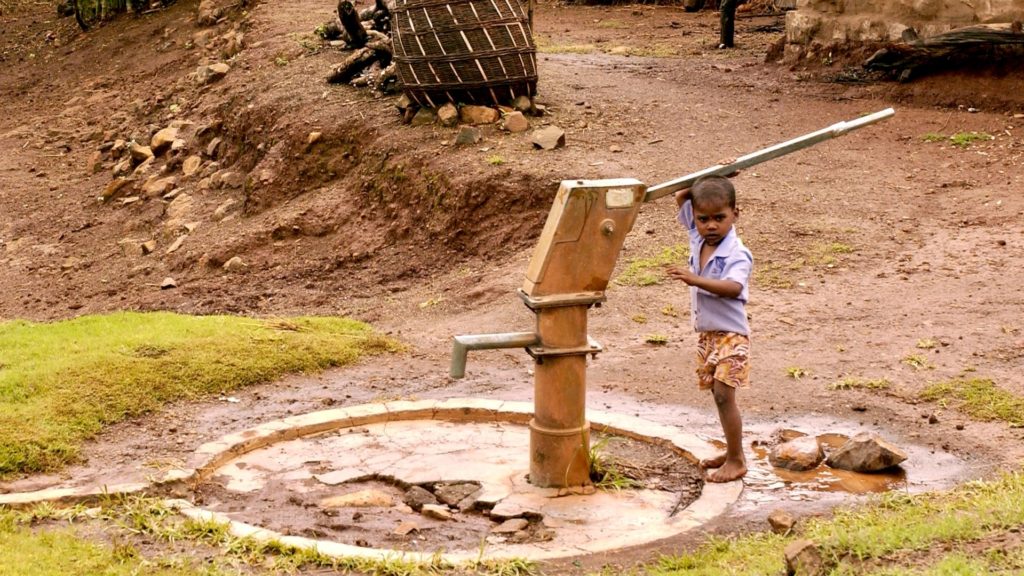In 2021, World Water Week addressed the theme ”Building Resilience Faster”, focusing on concrete solutions to the world’s most significant water-related challenges, starting with the climate crisis and including water scarcity, food security, health, biodiversity, and impacts of the Covid-19 pandemic. SIANI convened together with SIWI, NORDEA, RE:Act and SLU in the session ”Climate impacts antimicrobial resistance: A WASH and One Health challenge”, providing insights into the relationship between climate change, water, and antimicrobial resistance (AMR).
Pandemics. The climate crisis. Waterborne diseases. Undoubtedly, there is a link between climatic factors like climate change, greenhouse gas emissions, and infectious diseases. Climate change could lead to the greater dissemination of viral- and infectious affections due to temperature rise and, therefore, the aggravation of AMR, as highlighted by the speakers on the World Water Week AMR session. Waterborne diseases, such as cholera, are often linked to poor WASH (water, sanitation, and hygiene). The use of antibiotics usually occurs in the animal industry and small-scale animal husbandry. Overuse of antibiotics for preventive purposes and lack of access to clean water, sanitation, and hygiene for both humans and animals are the primary sources of AMR.
”We need to keep antimicrobials working. Simply waiting for new drugs is not an option because of the extraordinary cost and complexities of research and development. Without effective, efficient medicines, the spread of infectious diseases threatens to escalate out of control,”
Qu Dongyu, Director-General of the Food and Agriculture Organization of the United Nations
With the climate crisis worsening, this combination of raised infection rates and antibiotic resistance results in more antibiotic-resistant pathogens.
Most recently, the health emergency caused by COVID-19 has affected all countries in various degrees. Considering that water, sanitation, hygiene and infection, prevention, and control in health care facilities and isolation centres are among the most critical interventions in infection control, many countries have implemented these measures to mitigate the effects of the crisis.
Based on experience from previous crises, it is known that the capacity of the WASH sector to respond and coordinate with other sectors and be a whole part of the emergency coordination mechanism has not always been successful. Therefore, WASH needs to be included in plans and strategies to combat AMR as a part of a comprehensive approach to addressing multiple drivers of AMR. The COVID-19 pandemic provided a global learning case for willingness to a quick action which needs to be closely analysed. In this regard, since the beginning of the outbreak, SIWI and UNICEF have mapped some of the initiatives implemented by various countries in response to the COVID-19 pandemic. Despite significant regional and national disparities, initiatives that relate to the intensification of behaviour change and awareness-raising campaigns to promote handwashing and other IPC measures are widespread and widely adopted.
Climate change and antimicrobial resistance are two of the most urgent global challenges. To counter this, more attention to WASH and waste management actions must be present in the multi-stakeholder platforms in AMR and national action plans (NAP’s). However, we must recognize that recovering and rebuilding can be done only by including all groups, especially the most vulnerable. Understanding and committing to the human rights to sanitation and water can help us better prepare for future attacks making us more resistant and resilient.
During the WWW AMR session, Mr. Alex Mung, Head of Water and Environmental Resilience at the World Economic Forum, emphasized that treating waterborne diseases such as cholera and AMR is significant. While an array of responses is needed, it is clear that a united multisectoral approach is required to safeguard our health and economic cost from future pandemics. Linked to the presentations by Mrs. Sabiha Y. Essack, South African Research Chair in Antibiotic Resistance and One Health, and Mr. Mung explored the impact of climate change on migration, which will affect the infrastructure on Earth, such as more hurricanes, floods, and droughts. A warmer climate with different migration patterns and changed infrastructure will probably drive a more unstable WASH situation among the Earth’s inhabitants, which means also running AMR if no measures are taken today. Some other vital messages were that there are large knowledge gaps about how AMR will be affected by climate change. AMR is something we all need to be extra aware of. Those who are involved in WASH, Health, and agriculture/ aquaculture/ livestock at some level can help fill the knowledge gap through increased awareness and interest. The One Health approach strives to designing and implementing programs, policies, legislation, and research in which multiple sectors communicate and work together to achieve better public health outcomes (WHO, 2017).
The world must recognize the ”leave no one behind”- one of the six guiding principles of the United Nations Sustainable Development Cooperation Framework, that is, ensuring that the status of those most vulnerable is considered when recovering and rebuilding in the months and years to come. The critical importance of WASH services for society has been demonstrated once again. It is time to use the learnings of these crises to be better prepared for the future.
Text by Marta Anguera & Filippa Ek, SIANI
